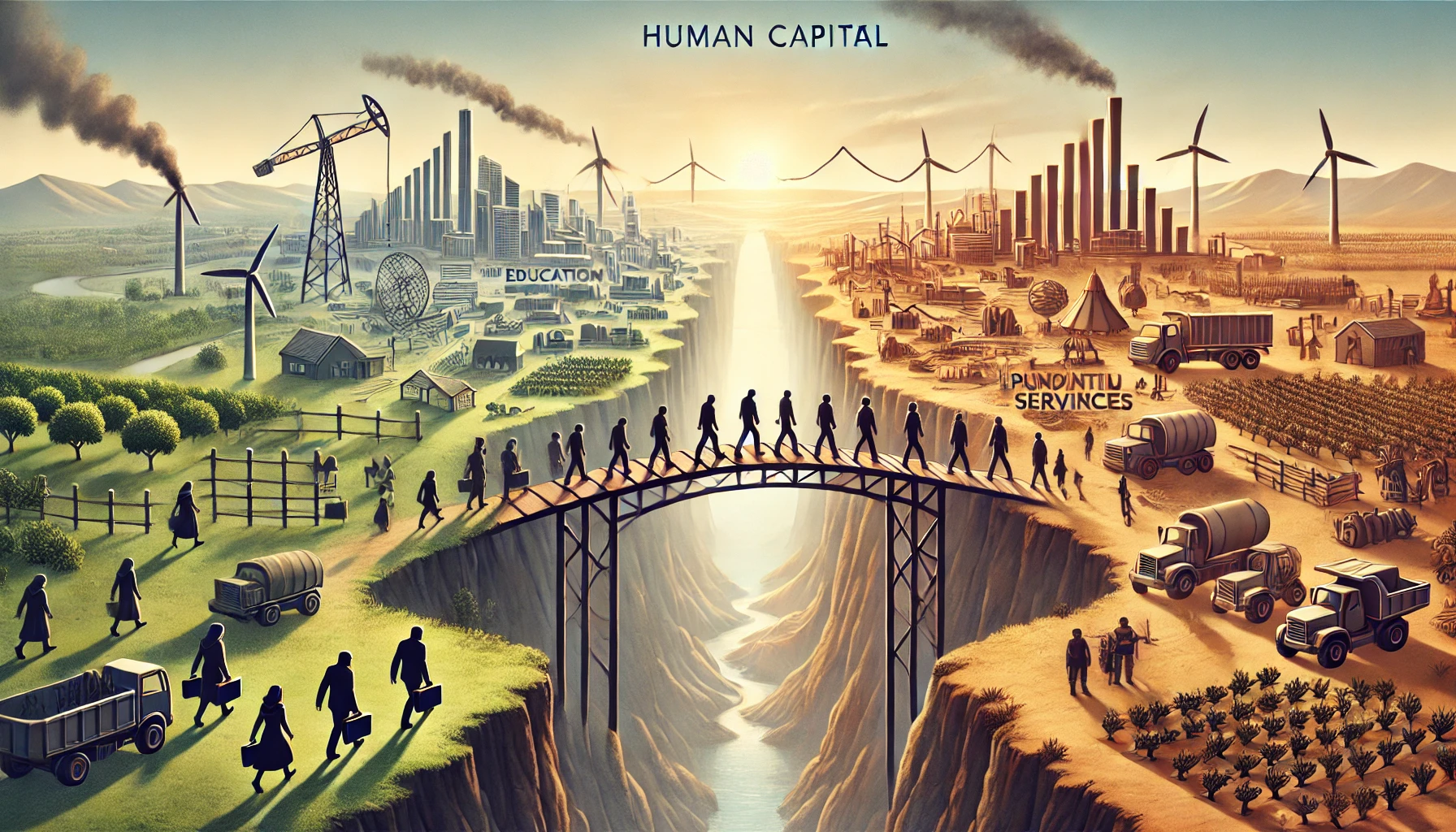From Barriers to Growth: Utilizing Human Capital for a Prosperous Future
The World Bank's paper by Federico Rossi and Michael Weber examines how human capital accumulation and effective utilization are key drivers of economic development, especially in developing countries. It emphasizes the importance of addressing barriers like poor education and health to unlock the potential of human capital for growth.

The World Bank’s working paper by Federico Rossi and Michael Weber explores the pivotal role human capital plays in economic development, particularly in developing countries. The paper highlights how human capital, encompassing cognitive skills, health, physical traits, and socio-emotional abilities, is built up over a person's life, beginning even before birth and continuing through childhood, adolescence, and adulthood. Human capital is not just about formal education; it includes a broad range of factors that influence productivity. One of the key arguments in the paper is that the accumulation of human capital is strongly influenced by various barriers, especially in developing countries, where poor nutrition, disease, and lack of educational opportunities are common. These barriers significantly contribute to the wide gaps in productivity and income levels between rich and poor countries. Even though educational attainment has improved globally, these barriers persist in many parts of the world, reinforcing inequalities and limiting economic growth.
Human Capital’s Role in Economic Growth
At the heart of the discussion is the relationship between human capital and economic growth. Human capital increases worker productivity, but the impact of human capital on development is also determined by how well it is used within the economy. The effective utilization of human capital in the production process is crucial for realizing the benefits of investments in education and health. In many developing countries, however, the utilization of human talent is hindered by various frictions. Poor infrastructure, inefficient labor markets, and a lack of opportunities for high-skilled workers all contribute to underutilization, which in turn limits economic growth. As a result, even if workers in developing countries acquire more education, their skills are often not fully put to use, reducing the returns on human capital investments. This contrasts sharply with wealthier countries, where human capital is more efficiently utilized, and skilled workers are more likely to be employed in high-productivity sectors such as manufacturing and services. These differences in human capital utilization further widen the income gap between rich and poor nations.
The Future of Human Capital in Addressing Global Challenges
The paper also delves into the future role of human capital in addressing global challenges such as climate change, demographic transitions, and rapid urbanization. As the global economy evolves, these challenges are expected to reshape the demand for skills. Human capital will play a critical role in enabling countries to adapt to these changes. For instance, the authors argue that as climate change impacts agricultural productivity, particularly in poorer countries, workers will need to shift to less climate-dependent sectors such as services and manufacturing. Human capital will be essential in facilitating this transition. Similarly, demographic changes, such as aging populations in both rich and poor countries, will require continued investments in human capital. Older workers will need to continuously upgrade their skills to stay productive in a rapidly changing economy. Urbanization, another global trend, is also closely linked to human capital. Cities tend to offer better opportunities for human capital accumulation and utilization, as they provide access to higher-quality education, better health care, and more diverse employment opportunities. As more people move to urban areas, human capital will likely become a key driver of urban development and economic growth.
Overcoming Barriers to Human Capital Utilization
However, the paper emphasizes that while human capital accumulation is essential, it is not enough on its own to drive development. The utilization of human capital is just as important, and in many developing countries, this is where the greatest challenges lie. Even when workers acquire education and skills, they often face barriers that prevent them from fully utilizing their talents in the labor market. These barriers include weak institutions, inefficient labor markets, and a lack of opportunities in high-skill sectors. The misallocation of talent, where workers are not employed in roles that match their skills, further reduces the impact of human capital on development. Addressing these challenges will require targeted policies that not only focus on increasing access to education and health services but also on ensuring that the skills people acquire can be effectively utilized in the economy.
Policies to Unlock Human Capital Potential
The authors conclude by highlighting the need for more research into the types of skills that will be most relevant for future economic trends, particularly in light of global challenges such as climate change and urbanization. They also call for policies that address the barriers to human capital utilization, particularly in developing countries, where these barriers are most pronounced. These policies should focus on improving infrastructure, enhancing labor market efficiencies, and fostering opportunities in high-productivity sectors to ensure that the full potential of human capital can be realized.
Human Capital as a Driving Force for Development
In the end, the paper underscores the dynamic interplay between the accumulation and utilization of human capital in driving economic development. Human capital remains a key determinant of productivity and growth, but realizing its full potential will require concerted efforts to remove the obstacles that prevent its effective use in the economy. Properly harnessed, human capital can be the catalyst for overcoming global challenges, closing income gaps, and enabling sustainable growth across all stages of economic development.
- FIRST PUBLISHED IN:
- Devdiscourse
ALSO READ
India's Economic Growth Shines Amid Global Uncertainty
Surge in U.S. Retail Sales Signals Robust Economic Growth
Economic Growth: The True Catalyst for Financial Inclusion
Climate Action and Economic Growth Are Mutually Reinforcing: President Ramaphosa
Rising Emissions Surge Past Economic Growth in 2025










